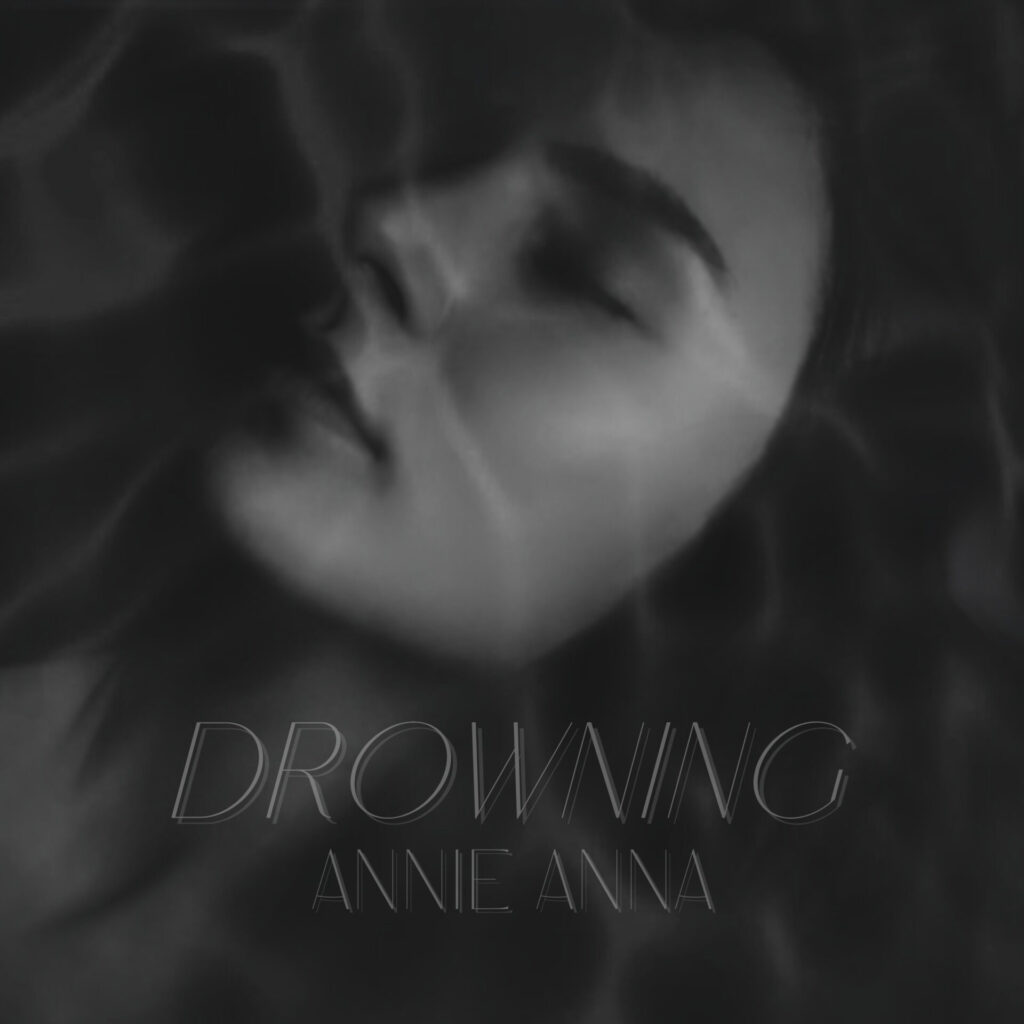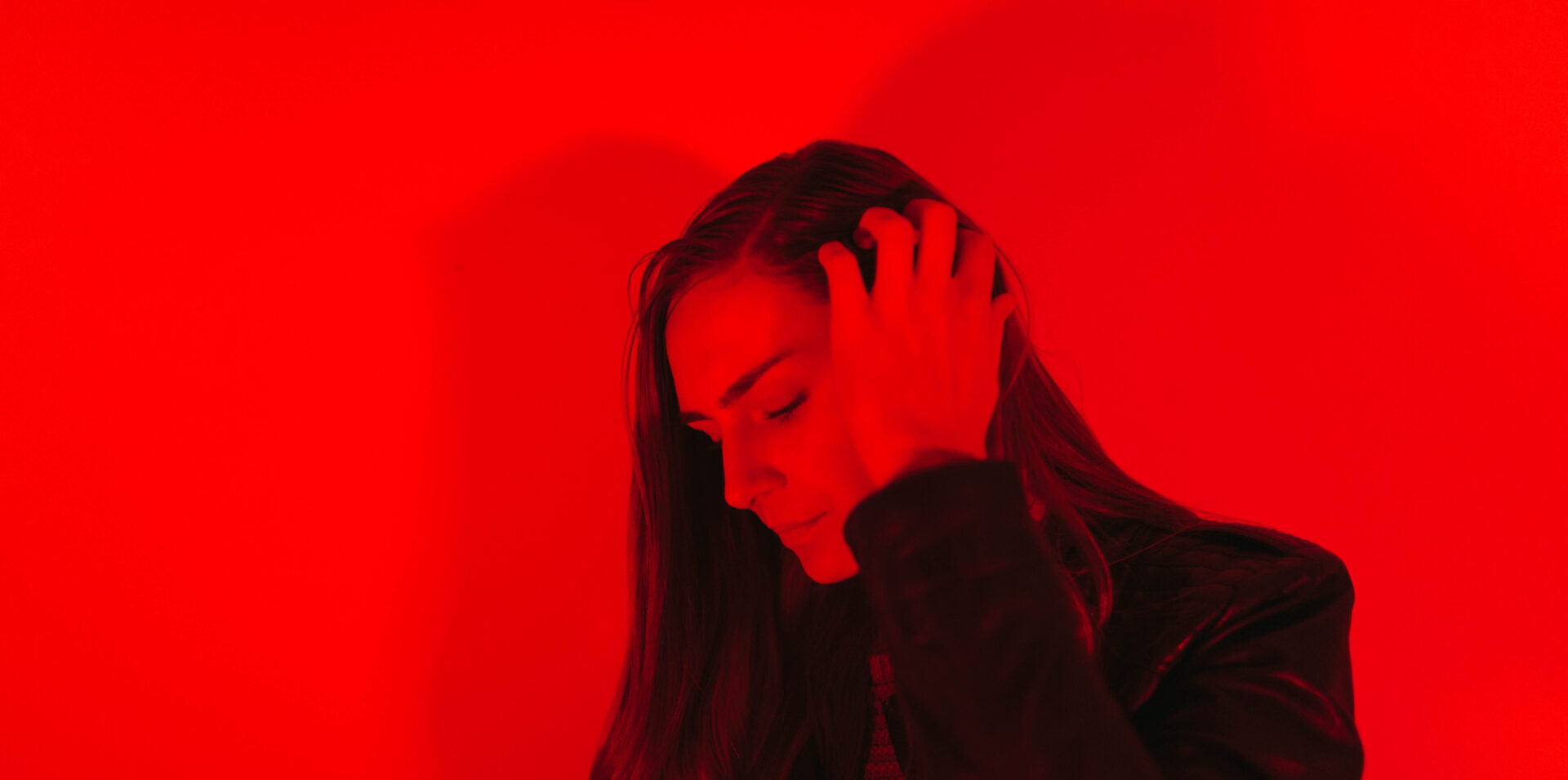Currently based in Tucson, Arizona, Annie Anna is a singer-songwriter. She draws inspiration from musicians like Hozier, Matt Maeson, and Shakey Graves, and her music combines strong vocals with ominous acoustics and auxiliary percussion. Her music best fits the definition of folk and rock with storytelling lyrics from a singer/songwriter.
Her most recent song, “Drowning,” is a fierce depiction of the oppressive feeling of being controlled by someone else. The song, which was inspired by the singer’s own “coming of age” tale, uses dark electric and acoustic guitar undertones, dynamic drumming, and intense vocals to convey the rage and frustration that come along with feeling manipulated. Check out the exclusive interview below:

1. Can you tell us a bit about where you come from and how it all got started?
ANNIE ANNA: I’m a born and raised Kansan, and I’m originally from a medium sized town smack dab in the middle of the state. I’ve been doing music for as long as I can remember, honestly, and I’ve been singing for about as long as I have been able to talk. My dad is a musician, and I grew up listening to him sing and play guitar. I really credit him for showing me how to connect with music and inspiring me to perform and make my own music. I grew up singing in choirs, playing in the high school band/jazz band, and taking piano lessons, but I didn’t perform as a soloist until I was in 7th grade. I’ve always been more of a quiet, reserved person, so no one really knew I could sing until I performed in a talent show. All my classmates were blown away by the performance. Up until then, I didn’t really have much confidence in my abilities, so that performance ended up being a way to prove to myself that music is something I could actually pursue. After that, I started booking small shows at the coffee shop in my hometown, and eventually I started branching out to coffee shops outside of my hometown. I actually met Riley Corbin, the guy I record with, through one of my shows at a coffee shop/cocktail lounge, and the rest is history.
2. Did you have any formal training or are you self-taught?
ANNIE ANNA: I have a mixture, depending on the instrument. I’m entirely self-taught as a guitarist, but I took formal lessons for both piano and drums. As a vocalist, I’m mostly self-taught, but I’ve had some “sprinkles” of formal training here and there. I never took any dedicated vocal lessons, but I did get a little coaching here and there through singing in choirs.
3. Who were your first and strongest musical influences and why the name ‘ANNIE ANNA’?
ANNIE ANNA: My dad is really my first influence. He also did a great job of introducing me and my siblings to his favorite music, so I grew up listening to 70s and 80s pop/rock from groups like Fleetwood Mac, Hall & Oates, Toto, etc. My taste in music these days is much more eclectic than that, but I still gravitate towards alternative, folk, blues, and rock. I still consider Stevie Nicks a significant influence, but I’ve added more modern artists to the list as well. Hozier is a huge influence as well as Matt Maeson. Shakey Graves is also an influence who helps me tap a little more into my country/western side. Annie Anna is actually just a variation of my name. My legal first and middle names are Stephanie Anna. To get the stage name, I dropped ‘Steph’ and added an ‘n’ to make Annie a typical spelling. As for where my actual name comes from, my first name is a variation of my dad’s name (Steven), and I got my middle name from my great-great-aunt. She was honestly a badass who, despite going through a lot of hardships, never let anything hold her down. I think that’s very representative of me and my music, so including it in my stage name felt right.
4. What do you feel are the key elements in your music that should resonate with listeners, and how would you personally describe your sound?
ANNIE ANNA: I’ve always played/written music due to the emotional connection I have with it, and I think the amount of emotion behind my songs is what resonates a lot with my fans. The emotion behind my music becomes very apparent when you listen to my vocal delivery, which is honestly not something I plan out before performing a song. All I really do is tap into the feeling of a song to drive the emotion home with my singing. I would personally describe my sound as a mixture of folk and rock. As someone originally from the Midwest, I have some country elements mixed into my style, as well as blues.

5. What has been the most difficult thing you’ve had to endure in your life or music career so far?
ANNIE ANNA:
So far, it’s been a tie between healing from depression and learning to cope with a serious chronic illness. I’ve written songs about both, and they’re always the most emotional ones in my set. I still tear up a bit playing those songs at shows.
6. Do you feel that your music is giving you back just as much fulfillment as the amount of work you are putting into it or are you expecting something more, or different in the future?
ANNIE ANNA:I think regardless of whether or not my music goes anywhere, it’s going to give me fulfillment. The only reasons I want my music to be more known is so 1) I can connect with more people emotionally, and 2) so I can bring in enough revenue to dedicate more of my time to it without taking a huge financial hit (I would love to quit my day job and just make music all day, but I also need to be able to eat and afford a place to live). Those two things are really the superficial end goal right now, but even if neither become a reality, it won’t change the way I feel about making music. I feel like we all have that one thing in our lives that really makes us feel alive, and for me, that will always be music. As long as I am able to spend some time creating, I will be content.
7. On the contrary, what would you consider a successful, proud, or significant point in your life or music career so far?
ANNIE ANNA: Honestly, I’m extremely proud of myself for having the courage and strength to learn to heal from those two experiences. As a musician specifically, I’m also very proud of myself for overcoming my negative self-talk and creating music/performing despite my insecurities. I think I will always struggle a bit with self-confidence, but I learned to not let that hold me back from doing the things I want to do.
8. Could you describe your creative processes? How do usually start, and go about shaping ideas into a completed song? Do you usually start with a tune, a beat, or a narrative in your head? And do you collaborate with others in this process?
ANNIE ANNA: This varies a little bit, but I usually start by messing around on guitar or piano and humming melodies. Once I find something I like, I will start writing lyrics to it. My more emotional songs are the exception to this; they usually just pour out of me, for lack of a better term. ‘Drowning’ and ‘Loaded Gun’ are two that more or less just popped into my head. In those cases, I write down whatever comes to mind, and then I immediately grab my guitar and start working through both melody and lyrics in real-time. These songs usually end up being written the fastest too, since there’s so much emotion behind them. So far, I have collaborated very little in the lyric and melody writing process, although with instrumentals, Riley Corbin is really the mastermind who helps me bring my music to life. I also seek feedback on how I can improve my music throughout the recording process, and my older sister is really my go-to for that. She’s played a big role in all of the songs I’ve recorded to date, and I always seek pointers from her while working through a song.
9. Creative work in a studio or home environment, or interaction with a live audience? Which of these two options excites you most, and why?
ANNIE ANNA: Both are great, but I get more excited about performing and interacting with a live audience. I love hearing about my audience and how my music impacts them.
10. Do you think it is important for fans of your music to understand the real story and message driving each of your songs, or do you think everyone should be free to interpret your songs in their own personal way?
ANNIE ANNA: I think everyone should be free to interpret music themselves. I think a lot of the beauty in music lies in its ability to be molded to fit someone else’s experiences, and I think some of the best songs maintain an element of mystery that leaves much up to interpretation. I personally feel like that an individual’s interpretation of a song is what enables them to build a strong relationship with the artist, as it makes you feel understood.
KEEP IN TOUCH:
FACEBOOK | INSTAGRAM | SPOTIFY | WEBSITE | YOUTUBE

Photo Credit: Nick Rodell, Marcea Corbin
